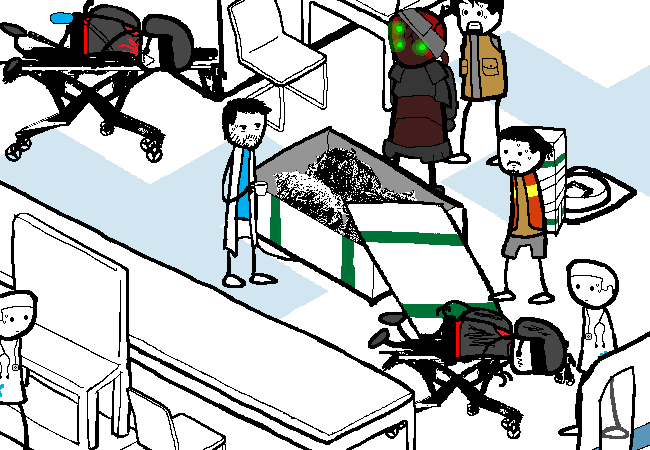

Using your outrageously massive strength, augmented by your powered hardsuit, you rip the lid off.
It is now time for a short break to learn fun facts about pollinators.
The Unofficial Galactic Company Protocol Guide has this to say on the topic of pollinators and hydroponics.
Pollination is a necessity of any deep-space plant-growing arrangement with any common sense. While a perpetual supply of cloned seeds could certainly be delivered to every cargo bay forever, the opportunity for genetic diversity in totally isolated areas presents too much of a potential economic gain. By turning every station into its own botanic island, genetically-speaking, and then freely encouraging the mad scientific urges of the average botanist, extremely unusual plant life can be found. Much of it is useless, much of it is deadly, and barely any of it has medicinal or market value. But all of it, every single species, can be patented, which is the important part. Boosting the quarterly numbers for the agribusiness patents department is the entire goal.
However, this requires a lot of pollinators. Maintaining and encouraging that amount of genetic diversity is no mean feat. Robotic drones were the first attempt, but objects the size of insects being bound by the three laws of robotics caused a number of workplace accidents. Then bees. Arguably the most successful, bees are both effective pollinators and totally harmless to normal human life, beyond specific allergic reactions driven by esoteric chemistry, and specific violent reactions driven by watching a lot of television. Bees were effective, straightforward, and useful. However, due to the use of domesticated bees in a convoluted scheme to reclassify all crewmembers as bees for liability purposes, supplying additional bees became a point of arbitrary rejection.
In lieu of that, a substitute pollinator was found. One that could also function as a pesticide, feed off of nearly any meat, and still effectively pollinate the average botany department.